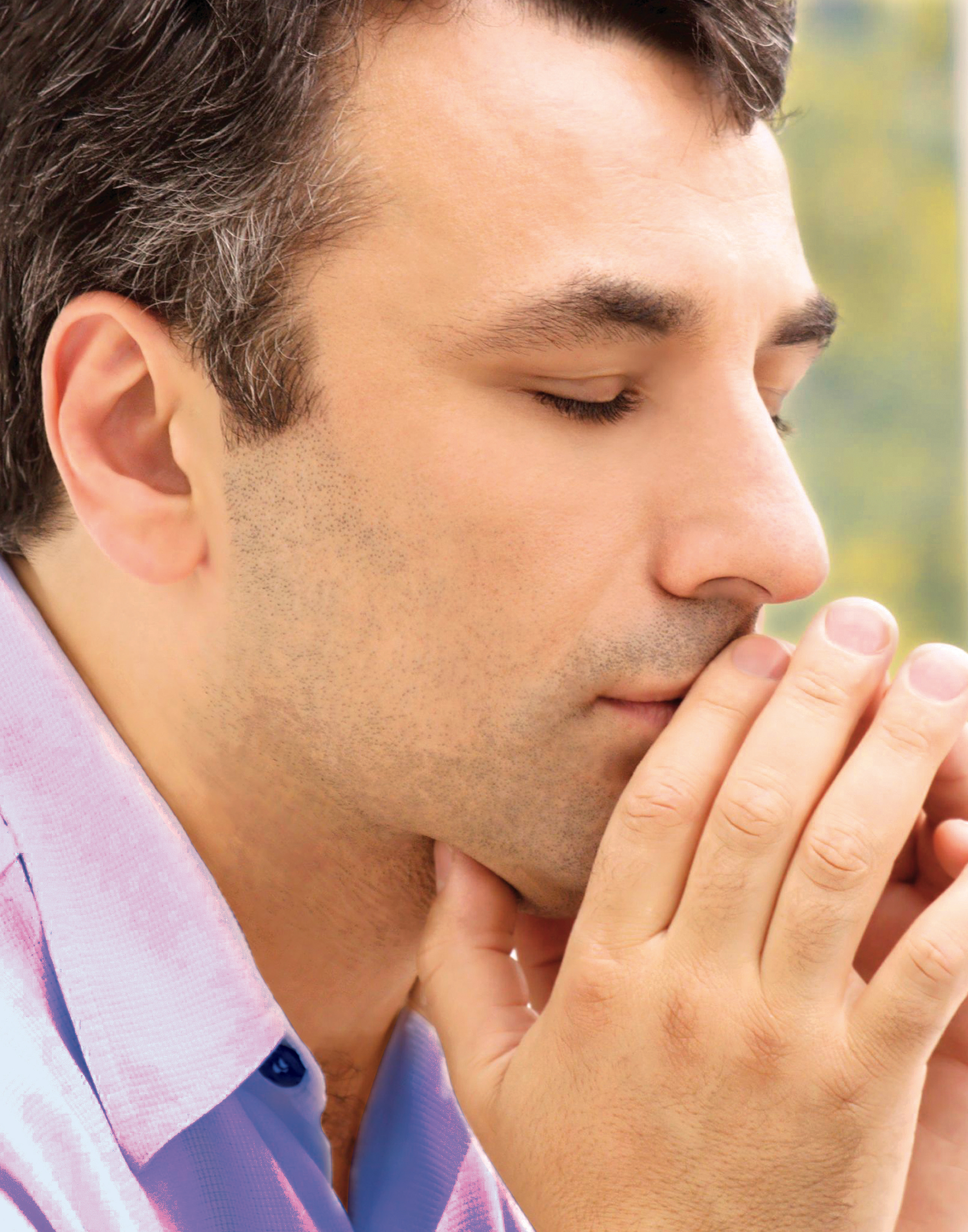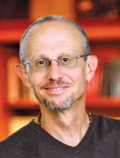“Every minute of every day, two people in America are diagnosed with cancer and one person succumbs to it. Over the course of a lifetime,more than one in three American women and almost one in two American men will develop some form of cancer. We’ve invested billionsof research dollars and over $100 billion of annual care, and yet the overall incidence of cancer and the outcome from treatments leaves considerable room for improvement. With these numbers in mind, it is a rare person who has not been or will not be affected by cancer sometime during his or her lifetime.”
What is this disease telling us? As individuals and as a community, we cannot ignore the message this illness is sending us. On physical, emotional and spiritual levels, cancer is delivering a wakeup call that requires our attention. With over three-quarters of cancers having some relationship to lifestyle or environmental factors, we must look at the choices we are making and reduce our tolerance for toxicity in our lives. What we eat, what we breathe, and what we allow into our soil and water all contribute to our risk for illness. Each of us is individually and collectively responsible for the environment, which according to Ayurveda is our extended body.
On an emotional level, we know that there is an intimate connection between our mind and body. If our inner dialogue is one of stress and discontent, we transmit that message to every cell in the body. Our immune cells are continuously listening to the conversation we are having with ourselves and responding to the task of protecting us from illness with greater or lesser enthusiasm. Learning to communicate consciously and using our five senses to invigorate our inner pharmacy are essential keys to enlivening our mind-body connection and fortifying our immunity. Our societal confusion about who is friend and who is enemy is being played out in our personal immune systems. Making the commitment to peace of mind is the most essential step to create peace in our bodies and peace in the world.
Spiritually, the message is the perennial reminder that life is delicate and short. Cancer reminds us to live in the present, ensuring that our hearts and minds are free from resentments, regret, and hostility. Underlying the field of thoughts that define our minds and the
field of molecules that defines our body is the field of consciousness – of spirit – that while remaining beyond space/time give rise to subjective and objective reality. Rediscovering our essential infinite and eternal nature is the secret to accessing our deepest source of energy, creativity and healing. Only by tapping into the timeless realm within our own awareness can we experience genuine freedom from the inevitable challenges of time-bound existence.
While no one consciously chooses to develop a serious illness, many people look back and see the challenge of their cancer as the most important and meaningful experience of their lives. I have been impressed time and again by the spiritual opportunities that serious illness affords. When we encounter the real possibility of death, each day takes on new meaning and purpose. Old grievances and material goals for the future fade in importance as those aspects of our life that are core to our meaning rise to the forefront. I commonly see people who have recovered from cancer leave jobs they’ve been dissatisfied with for years and pursue long-held dreams. I often see estranged families reunite when a member has cancer.

“Only by tapping into the timeless realm within our own awareness can we experience genuine freedom from the inevitable within our own awareness can we experience genuine freedom from the inevitable challenges of time-bound existence.”
Weathering the emotional storms
When a person is initially diagnosed, the first goal is to reduce distress to a manageable level where appropriate treatment choices can be made. While striving to regain some emotional equilibrium, I encourage my patients to use as many healing strategies as possible, recognizing that each of us has unique needs and responds in different ways to life’s offerings. Once a person feels at least a semblance of balance, the opportunity to dive more deeply into the emotional and spiritual meaning of illness is available. At every stage, there are four components that can be valued allies in the healing process:
- Meditation, prayer, and visualization techniques
- Emotional expression
- Family support
- Self-empowering knowledge
Each of these components addresses an important facet of the emotional needs of people facing cancer.
1. Meditation, prayer, and visualization
The fields of the mind and body are inextricably interwoven, so a disturbance in one generates a disturbance in another. For example, when we think,
“My pain is getting worse. I’m sure my cancer is spreading,” our thought generates discomfort and agitation in our body. Then we may have further thoughts about our discomfort, which in turn creates yet more pain in our body. We can create a painful thought-loop that takes on a life of its own. To stop the negative spirals of thought and emotion, the most powerful thing we can do is to go beyond the mind’s turmoil and experience the quiet, restful awareness of expanded consciousness. As numerous scientific studies have discovered, meditation, prayer, and healing visualizations are incredibly powerful tools for calming the mind, providing the best opportunity to send healing messages to our body.
There are many meditation styles. If a meditation technique takes you to a place of quiet inner reflection, it serves its role. For some, going on a walk can provide this valuable centering. For others, listening to classical music or guided visualizations can soothe a turbulent mind.
“Listen to music, take a yoga class, take an art class, or watch a comedy. Redirect your attention away from stress-provoking art class, or watch a comedy. Redirect your attention away from stress-provoking thoughts by using positive affirmations.”
2. Emotional expression
Our emotions are a fathomless ocean of thoughts and feelings. On any given day our emotional sea may be calm with clear visibility or intensely turbulent. Emotions express themselves through our flesh and bones, demanding our attention and refusing to be rational. They are called feelings because we feel them in our body – tightness in our stomach, heaviness in our heart, a choking sensation in our throat.
Our body expresses its wisdom through our experience of comfort or distress, and our feelings are the distilled essence of our mental and physical states. As paradoxical as it may seem, when you have a serious illness such as cancer, reacting with initial psychological distress is healthy. The anxiety and sadness you feel is a natural response to your perception of loss. The physical sensations of discomfort serve to capture your attention and mobilize your inner healing resources.
When facing a challenging circumstance, the following process can help you move through the emotional upsets without creating needless additional stress:
1. Identify the emotion. When you find yourself in a state of emotional turmoil, find a quiet place and ask yourself, “What am I feeling?” The answer may be anger, sadness, fear, and so on. Define and describe what you’re feeling as clearly as possible.
2. Witness the feeling in your body. Notice where you feel the emotion in your body. Simply observe the feeling and allow your attention to stay on the sensation. Consciously direct your breath to the location in your body that is holding the sensation and allow each exhalation to release some of the tension. Fully experiencing the physical sensation allows the emotional charge to dissipate.
3. Take responsibility for what you are feeling. Understanding that you have a choice in how you respond to and interpret your experience is the key to healing the emotional body.
4. Express the emotion. You can write about your feelings or speak them out aloud in private. I have found that keeping a journal just for this purpose is invaluable. Describe the situation
and the effect it is having on your heart and soul. Resist the impulse to filter and allow yourself to write whatever comes to mind, even those things you would never feel comfortable saying aloud. This will help you gain clarity and insight as well as release the emotional toxicity.
5. Release the emotion through a physical ritual. Experiment to find what works best for you. You can dance with abandon, do some deep breathing, get a massage, or go on a long run. If you are feeling angry, pound a pillow, throw rocks into the ocean, or yell at God. Do whatever you need to give your body a sense of relief without harming yourself or the environment. Allow your body to release the tension that is stored with the emotion.
6. Share the emotion. Once you’ve released and calmed down, share what you felt and experienced with the person involved in the situation. Ask the person with whom you are communicating to listen attentively without interruption. If you have processed steps 1 through 5, you should be able to share without blame and without trying to manipulate the other person for approval or pity. Speak from your heart until you feel complete. Then it is the other person’s turn to speak while you listen with the same attention that you received.
7. Commit to right action. With the return to your emotional center, make a commitment to become an active partner in your healing process. Utilize the best of Western conventional medicine, which is generally designed to reduce or eliminate cancer cells, and explore the holistic health world, engaging in practices that awaken and support your intrinsic healing response. Listen to music, take a yoga class, get a massage, take an art class, or watch a comedy. Redirect your attention away from stress-provoking thoughts by using positive affirmations. 3. Family Support When one person in a family has cancer, it shifts the entire network of relationships within a household. Some families naturally rally behind the loved one with the illness, intuitively mixing the right blend of sadness and hope, seriousness and lightheartedness, courage and surrender. In other families, the fear and uncertainty surrounding cancer intensifies the underlying tensions and dysfunctions that were already straining the family bonds. Whatever existing patterns of communication exist, cancer provides a chance to heal old wounds and establish new levels of intimacy if family members make a concerted, united effort to seize the opportunity for transformation.
 I recommend that the family meet on a regular basis, with each member taking turns expressing themselves honestly and openly, using the tools of conscious communication. Especially during the first few months after the diagnosis, having a formally scheduled pow-wow provides the family with a healthy forum for expressing their fears, hopes, and needs. In his insightful book Nonviolent Communication, psychologist Marshall Rosenberg offers practical instruction that will help you develop the skill set of conscious communication.
I recommend that the family meet on a regular basis, with each member taking turns expressing themselves honestly and openly, using the tools of conscious communication. Especially during the first few months after the diagnosis, having a formally scheduled pow-wow provides the family with a healthy forum for expressing their fears, hopes, and needs. In his insightful book Nonviolent Communication, psychologist Marshall Rosenberg offers practical instruction that will help you develop the skill set of conscious communication.
If your family has never been skilled at communicating, consider asking for professional help from a family counselor, minister, priest or rabbi, Seize the opportunity that cancer offers to deepen your intimacy with your family and friends who are fellow travelers on this fleeting and precious journey of life. 4. Self-Empowering Knowledge Learning about the cancer you are facing is empowering. If you grew up under the old paradigm in which patients were passive recipients of the care provided by experts in white coats, realize that you are the most critical member of your health care team. You are capable of understanding everything that is known about your illness. Question; challenge; and debate with your doctor on important aspects of your care.
Take advantage of the many resources available in this information age. Spend a day at your local medical library, access information from the Internet, and find support groups. As you research different approaches and treatments, try to keep a balanced perspective, weighing each option in both your heart and your mind. If a new treatment becomes available, speak directly to others who have experienced it before flying across the world to pursue it.
The healing path requires perseverance, flexibility, and openness. As you travel along your own journey, you will have new experiences and discover fresh information that will deepen your wisdom in life. Diane Connelly once wrote that “All sickness is home sickness.” This insight implies that healing is the process of returning home, which of course, is not a particular structure of brick and lumber, but the core essence of our being. Healing is an inward journey in which the fear of separation surrenders to the peace of unity as we discover our true, unbounded self.
“Seize the opportunity that cancer offers to deepen your intimacy with your family and friends who are fellow travelers on deepen your intimacy with your family and friends who are fellow travelers on this fleeting and precious journey of life.”
 David Simon, MD, was an author, physician, and co-founder of The Chopra Center for Wellbeing, California. Since his association with Deepak Chopra in the 1980’s, Dr. Simon became one of the foremost authorities in effective and appropriate fusion of western and eastern healthcare practices. He was dedicated to evolving the prevailing health care system to a “healing system.”
David Simon, MD, was an author, physician, and co-founder of The Chopra Center for Wellbeing, California. Since his association with Deepak Chopra in the 1980’s, Dr. Simon became one of the foremost authorities in effective and appropriate fusion of western and eastern healthcare practices. He was dedicated to evolving the prevailing health care system to a “healing system.”




